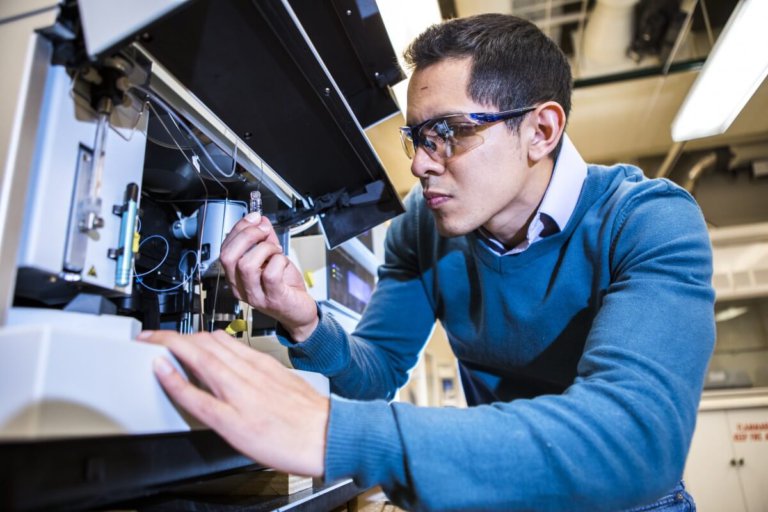
The significance of sustainability in engineering today cannot be overstated.
According to the Royal Academy of Engineering Trustee Professor Peter Goodhew CBE FREng, sustainable development plays a critical role in the careers of this generation of engineers. engineer’s career as they’re trusted to drive economic and social growth.
Engineers are the people entrusted to drive economic and social growth through their ingenuity in building structures, machines and processes.
These days, this also means they are “designing and delivering safe systems that facilitate education and healthcare, enhance the quality of life and safeguard critical infrastructure,” according to Professor Goodhew.
Between 2019 and 2024, The International Energy Agency (IEA) predicts that renewable power will expand by 50%. By 2050, up to 68 percent of the world’s population may live in urban areas.
Engineering has the potential to ensure we are ready for this future without depleting natural resources to the detriment of future generations.
Here are four engineering schools in the US with the undergraduate programmes and faculty members who are tackling the most pressing challenges facing the environment and humankind.
DEPARTMENT OF CIVIL AND ENVIRONMENTAL ENGINEERING — MICHIGAN TECHNOLOGICAL UNIVERSITY
Michigan Technological University (Michigan Tech) is well-known for engineering degrees that give students the best return on investment. A Michigan Tech engineering degree launches careers; these days, that includes breaking into emerging sectors such as clean energy and green technology too.

Source: Michigan Tech
The leading research institution is located in the Upper Peninsula of Michigan and close to Lake Superior, the largest natural freshwater lake in North America.
Michigan Tech’s Civil and Environmental Engineering Department is home to four programs that support the creation and sustainability of the physical world we live in: civil engineering, environmental engineering, construction management and geospatial engineering.
- Civil engineers create sustainable solutions to deteriorating infrastructure, traffic congestion, society’s energy needs, pollution, urban redevelopment, community planning, and risks posed by natural hazards such as floods and earthquakes.
- Environmental engineers identify and address environmental issues at the local, national, and global levels.
- Construction managers build the world around us, from industrial buildings and roads to homes and hospitals.
- Geospatial engineers verify and establish land boundaries and are key players in the design and layout of infrastructure, including roads, bridges, and cell phone towers.
Michigan Tech engineers have a job placement rate of up to 100% after graduation.
Are you ready to become a responsible engineer too? Start your future at Michigan Tech — it’s the sustainable choice.
DEPARTMENT OF ENVIRONMENTAL HEALTH & ENGINEERING — JOHNS HOPKINS UNIVERSITY
Johns Hopkins University in Baltimore acts as a bridge between 21st-century engineering and sustainable development.
For instance, its Bachelor of Science in Environmental Engineering addresses today’s environmental challenges that concern alternative energy sources, air pollution, urban sprawl and the depletion of natural resources.

Source: Johns Hopkins University
Using data-driven approaches, students are trained in research and cross-disciplinary problem solving. When they graduate, they are armed with the knowledge and practical skills to produce solutions to these challenges.
Students can put their practical skills to good use in South America and Central America with John Hopkins University’s Engineers Without Borders student-run group. During this programme, you’ll work with communities in developing nations to help improve their quality of life through engineering.
Or you can make an impact while studying abroad or enrolling in an internship during your undergraduate engineering degree.
At John Hopkins University, there are no limits to your learning.
SCHOOL OF CHEMICAL, BIOLOGICAL, AND ENVIRONMENTAL ENGINEERING — OREGON STATE UNIVERSITY
Oregon State University has one of the most multidisciplinary engineering schools in the US.
Their School of Chemical, Biological and Environmental Engineering uses chemistry, biology, physics, mathematics, computational methods, and engineering fundamentals to create solutions for some of the greatest challenges facing humanity.
If you’re hoping to become an environmental engineer, then expect a multidisciplinary approach to the School’s Bachelor’s of Environmental Engineering too.

Source: Oregon State University
This Bachelor’s curriculum integrates basic sciences (chemistry, physics, biology) and mathematics (calculus, differential equations), and it’s strengthened with engineering science fundamentals such as engineering mechanics, fluid mechanics, as well as heat and mass transfer.
All environmental engineering students participate in a capstone design experience that fosters interaction and communication between different engineering disciplines while applying environmental engineering principles to a real-world problem.
To graduate from Oregon State with this degree is to transform from a student to a work-ready engineer ready to solve contemporary environmental engineering problems.
DEPARTMENT OF CIVIL AND ENVIRONMENTAL ENGINEERING — COLORADO SCHOOL OF MINES
The Colorado School of Mine’s mission is to prepare students to address current and future challenges in earth, energy and the environment by delivering high-quality research and educational programmes in engineering and science.
One of these top-quality programmes is the Bachelor of Science in Environmental Engineering. Through this course, you will study environmental engineering subfields such as water resources engineering, site remediation, wastewater treatment processes and sustainable engineering design.
Or you can opt for the Bachelor of Science in Civil Engineering. Through this course, you will study civil engineering subfields such as structural engineering, geotechnical engineering, engineering surveying, construction engineering, and environmental engineering.

Source: Colorado School of Mines
Throughout your studies you’ll also have the chance to join various student groups such as the American Water Works Association (AWWA) and the Student Committee for Civil and Environmental Engineers (SCCEE).
You can even organise community activities of your own while studying. Because at the Colorado School of Mines, sustainability starts with you.
*Some of the institutions featured in this article are commercial partners of Study International
Liked this? Then you’ll love…
Charles Darwin University: At the forefront of sustainability
University of Helsinki: A global change-maker in sustainability







